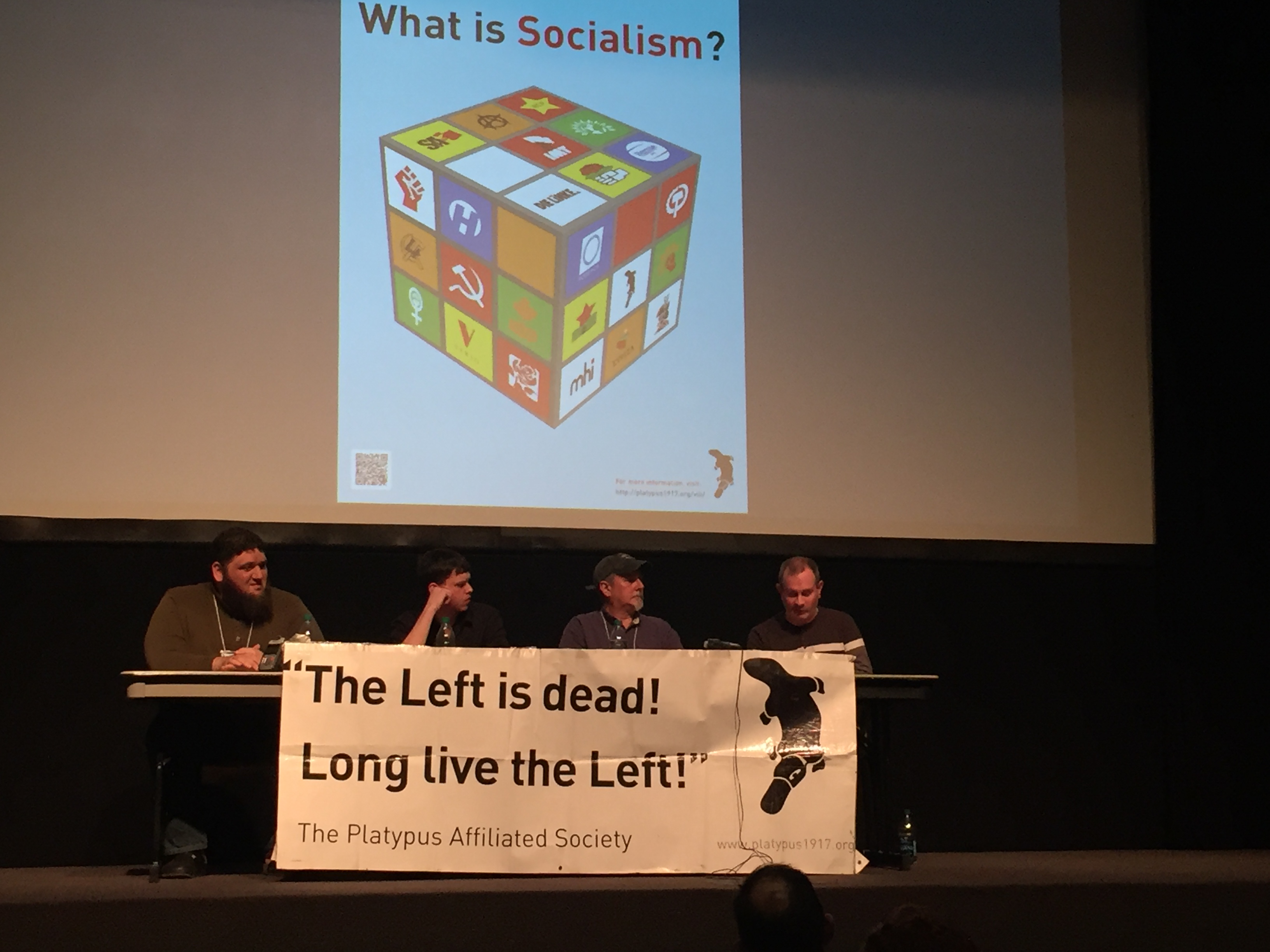The inevitability of failure — and of success
Chris Cutrone
LEADING PUBLIC MEMBER of the Socialist Workers Party of the United Kingdom, Richard Seymour, who made a name for himself with the book The Liberal Defense of Murder (2008), polemicizing against campaigns of “humanitarian” military intervention such as the Iraq War, recently released his book on the late Christopher Hitchens, Unhitched, demonstrating that Hitchens remains an enduring and indeed indispensable phenomenon in the present system of thinking on the “Left.”
Hitchens became a flashpoint in his support for the U.S. and allied invasion and occupation of Iraq. Why was Hitchens’s position so significant? After all, arguably many millions of people around the world supported the war and its aims. Hitchens, of course, was a former member of the “Marxist Left,” and even continued to avow his adherence to this, accusing the “Left” rather of deserting him, at least as much as it could be claimed that he had deserted it. Not many accepted Hitchens’s position. It’s unclear that Hitchens fully accepted it himself.
So, Hitchens was and continues to be denounced as a “renegade.” But a renegade from what? The “Left,” which is supposed to express potential and possibility.
As a politics, the Left, like any other, must express the “art of the possible.” The exercise of the faculty of political judgment has been sorely tested in recent decades, and not only on the ostensible “Left.” It is an endemic problem. Such judgment over the course of events, and what if any actions are to be taken therein, must risk the gamble of engaging reality with the aim of changing it. In so doing, accommodation to reality or of changing it only in worse ways, inadvertently reinforcing current trends, may defeat any attempted political action and threaten its goals. The degree to which anyone can claim to be a political actor at all, one must argue for action that does not simply sanctify existing tendencies, but can actually claim responsibility for its effects. Politics cannot succeed dishonestly. At least not for the Left.
To give political cover for what’s going to happen anyway is mere opportunism, the worst sin in politics. For this renders politics, that is, deliberate action attempting to take responsibility for the course of events, superfluous. It degrades agency, and evades rather than actually taking responsibility. Politics properly aims to be more than merely the mask or the performative rehearsal of the status quo. Politics aims at agency, and agency of change. Maintenance of the status quo doesn’t require politics, but only reproductive technique. At issue in politics is the direction of change: What ought to happen that isn’t already happening? How do we rally people for such a cause? What is to be done? And where do we want such action to take us? There is always much to dispute in this. Contention is the essence of politics. The only question is, what can be possibly and desirably contested?
In the case of the Iraq War, there were many avowed goals on the part of the U.S. and its allies. But perhaps the most compelling ideological aim was the “democratization” of Iraq (beyond the merely technocratic aim of removing “weapons of mass destruction” from Iraq, legalistically enforcing a prior United Nations mandate), freeing it from Baathist tyranny. This was the aim of the neo-conservatives, for example. And this aim was attacked by many, including traditional conservatives such as reelected President Obama’s current nominee for U.S. Secretary of Defense, Chuck Hagel. A conservative Republican, Hagel earned the ire of many in his party for his dissent from the Iraq War, based on his opposition to the military adventurism motivated by the neo-conservative ideologues. In this sense, Hagel’s opposition to the neo-cons was from the Right, that is, conservative with respect to action: better to not do something than to do something wrong(ly).
But the opposition to the war from the avowed “Left” was supposed to be different from this: neither merely technical (as in favoring economic sanctions over military action) nor conservative.
Hitchens debated Tariq Ali on the Iraq War, and they argued over the relation between their shared opposition to the Vietnam War, previously, and their disagreement over the Iraq War, now.
One memorable exchange went as follows:
[Hitchens:] I think that the United States and coalition forces are not militarily defeatable in Iraq. . . . I think it’s important to know first what can’t happen. . . . Unless the United States chooses to be defeated in Iraq, it cannot be. Therefore, the insurgency, so-called, will be defeated. And all logical and moral conclusions you want to draw from that, should be drawn.
[Ali:] Well, I think Christopher is right on this, that militarily, it is virtually impossible to defeat the United States. After all, they were not defeated militarily in Vietnam, either. . . . The question is this: The United States army cannot be defeated militarily; they’re incredibly powerful, but can the Iraqi people be defeated? Can Iraq be anything else but a lame colony, a mixture of Gaza and Guantanamo under foreign occupation? . . . And so one has to move to a situation of U.S. withdrawal, and the emergence of an elected Iraqi government, which will determine its own future, including control of its own oil. There’s no other way out.
http://www.democracynow.org/2004/10/12/tariq_ali_v_christopher_hitchens_a
What is remarkable about this exchange is how both Ali and Hitchens appear to have been correct in their estimations, however drawing opposite political conclusions. The U.S. was not defeated militarily by the insurgency; and there has been the emergence of an elected Iraqi government exercising independent sovereignty. And, as a result of both these eventualities, as the only possible outcome, the U.S. and allies have militarily withdrawn from Iraq.
While Hitchens may have been wrong with respect to the success of the military invasion and occupation, Ali was also quite wrong that the result of the war would be to render Iraq a “mixture of Gaza and Guantanamo under foreign occupation.” Also, what Ali described as the only “way out” was achieved not by military resistance to the U.S. and allied occupation but rather its forcible subdual.
At the same time, what Hitchens warned about the “theocracy” threatened in Iraq, while perhaps not quite as virulent as Hitchens may have feared, has indeed triumphed, and precisely as a result of the occupation.
This renders the Iraq War a curious non-event. All that happened was great bloodshed, and at enormous financial and other social costs. The only question remaining, then, is: Was it necessary? Was it worth it? Was the war avoidable? Was the atrocity avertable?
What has the history of the Iraq War shown to be possible and desirable, moving forward? No one wants a repeat of what happened. Does that mean that the war was a mistake? What was the alternative?
The unspoken point of Ali in his debate with Hitchens was that not only, as Hitchens put it, was the U.S. and allied military defeat not possible but “all logical and moral conclusions” must be drawn from that, but that what the U.S. and allies (at least the neo-cons) aimed to do, democratize and otherwise liberate Iraq, was also impossible, and that “all logical and moral conclusions” must be drawn from that, too.
The “democracy” aimed at by the neo-cons and others in invading and occupying Iraq was only ever going to be a neoliberal farce: only the neoliberal version of “democracy.” If the U.S. and allies aimed at democratizing Iraq, this raised the question of the agency for doing so: How democratic, really, were the U.S. and its allies, as political agents, themselves? How democratic was the war? How democratic could it be, anyway? And: Could the ends of democracy be achieved by non-democratic means?
War in the modern era is only ever regrettable necessity. But it is also opportunity. Not only Hitchens sought to make it so, and perhaps none did so with less venality. Did the Bush administration seek to make use of Hitchens or did Hitchens try to make use of the Bush administration? There is a certain tragedy in that, however masked by Hitchens’s false bravado, easily rendered pathetic.
So that leaves the war itself. Was it inevitable? The sanctions regime, including “no-fly” zones over vast regions of northern and southern Iraq, where Saddam Hussein’s Baathist regime faced opposition among the Kurds and Shia, respectively, had come into crisis. Neither Saudi Arabia, nor Iran, or Turkey would have accepted a return to a pre-sanctions status quo. Neither would have Kurdish and Shia opposition groups. At the very least, a civil war in Iraq was inevitable. Indeed, it was already ongoing. Of course such an ethnicized and culturalized civil war would have (for it already did) involve mass conflict, displacements and killings. Some advocated the war (Kurdish opposition groups); others took advantage of it (Shia opposition groups). Yet others resisted it (former Baathists and Sunni leaders) or at least tried to alter the course of its effects to their advantage. This was all more or less opportunism, however, not policy.
False necessities abounded, and were deployed opportunistically by both sides, such that further, growing threats could supposedly only be averted by military means: that it was preferable, for example, to face U.S. and allied military attack than to open Iraq to transparent arms inspections by the U.N., or that the political power of Baathist tyranny could be broken with desirable outcome only by military intervention. The two essential actors in the war were the Iraqi and U.S. regimes. And their conflicting politics were masked by crisis. (Internationally, the sanctions regime, the embargo that allowed only “oil for food,” was unraveling, whereas domestically, the Baathist regime was more tenuous, subsisting on an ever narrower basis.)
Not so Ali and Hitchens, neither of whom were in politically responsible positions or otherwise faced exigencies of necessity, but both of whom could only comment from the sidelines. They both advocated freedom for Iraq, but had radically different visions, not only of how to achieve this, but what it meant.
Hitchens’s pro-U.S. and allies position and Ali’s “anti-imperialism” both contained a kernel of truth: Hitchens that the Iraqi “resistance”/insurgency against occupation could only further the bloodshed and not advance the sovereignty of the Iraqi people and Ali that the invasion and occupation could only make things worse, undermining the very goals Hitchens and the neo-cons avowed, the liberation of Iraq.
Iraq is arguably more “democratic” and more politically dynamic today, involving more people and more diversely, as a result of the ouster of Saddam, than had been possible under the latter’s Baathism. But this has had nothing to do with genuine self-determination for the people of Iraq: no democracy. Nor has the debacle of the U.S. and allied military effort (the farce of a neoliberal, privatized/”outsourced” military policy) yielded a salutary political effect for people outside Iraq. The anti-war movement was as spectacular a failure as the war itself—and as spectacular a success. All around, common sense prevails. The political controversy died a quiet death, settled apolitically. Of the war, what opportunity could be made, was made. And we are all in great measure curiously in the same place as before. — All, that is, but the dead, who are not in a different place, but simply ended.
In certain respects, the Iraq War has not ended—will never end.
Victory is no victory; triumph is no triumph. Rather, misery prevails.
Failure has become success, and success has become failure. Ideologues were replaced by technocrats and technocrats by ideologues. Baathist state torture poses in retrospect as the only alternative to communitarian violence and civil war; and communitarianism as the only alternative to state repression. Obama was the only alternative to Bush; but only after Bush’s Presidency ended, guaranteeing Obama’s victory as the only “change” that could be “believed in.” “Sensible” political opposition to what the Obama campaign called “tactical success within strategic failure” triumphed; but still without undoing either the failure or the success of the war. McCain lost because no one wanted to face the war any longer. The only clear victims are the dead—and not all of them, for some must be counted among the war’s “victors,” having fallen willingly in pursuit and at least to some achievement of their goals. They, and politics.
And the victors? They have buried themselves in lies and crimes of opportunity.
The costs remain, but any sort of balance sheet is lacking. All political gain must deny itself, shamefaced. A solemn if not entirely satisfied silence rules that is no less opportune than the opportunism of the war itself.
Both sides—that is, both George W. Bush, Dick Cheney, et al., and former Baathists, as well as both pro- and anti-war politicians and commentators such as Ali and Hitchens—can continue to claim to having been in the right: to have wanted the right things and pursued them in the only ways possible. And both remain wrong.
The only question is, where has this left us, now? | §
Originally published in The Platypus Review 53 (February 2013). Re-published in The North Star.





